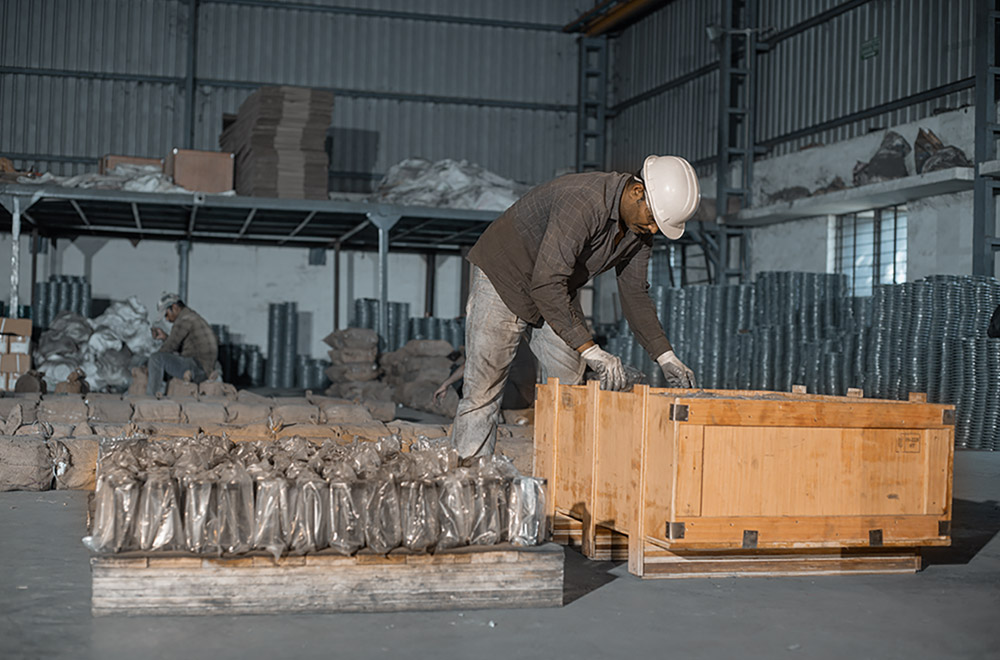Jan 26, 2026

Contact us today to discuss your requirements and discover how we can add value to your business.

Industrial casting needs may be a strategic outsourcing option for businesses that must reduce costs, improve efficiency, and avail themselves of the services of experts. Nonetheless, finding an exceptional foundry supplier is critical in guaranteeing quality, reliability, and meeting your project objectives. Before offshoring your industrial castings to a third party, the correct questions will guide you to narrow down potential providers and pay less for mistakes. This article is summarizing the best questions to ask if you are considering offshoring your industrial casting requirements, based on experiences and processes documented by industry stakeholders such as Sagar Foundry.
1. What Experience Does the Foundry Have in Industrial Casting?
Foundry experience is the bedrock. Industrial casting is a broad class of metal casting techniques like sand casting, investment casting, and die casting that are applied to different ends. Inquiry the foundry for experience in similar casting as your need. Sagar Foundry, for instance, trades in high-precision castings for automotive, agricultural engineering, and heavy industries with experience in cast iron and ductile iron material. Inquire from them about the type of projects they have handled, their business background, and for how long they have been operating. A foundry with a clean record in your area of operation will be likely to produce consistent performance.
2. What Materials and Casting Processes Are Available?
Material type and the casting process can do much to influence the quality and functionality of the end product. Request the foundry to specify what types of materials they are producing, for example, cast iron, steel, aluminum, or alloys, and if they are able to provide special material requirements. Also, find out what castings they specialize in. For example, Sagar Foundry is specialized in sand casting and green sand molding for the manufacturing of accurate, wear-resistant components. Verify that the technical expertise of the foundry matches your project’s technical specifications, whether you require complex designs or industrial components.
3. What Is the Foundry’s Production Capacity?
Prior to outsourcing, inquire if the foundry can accommodate your lead time and order volume. Inquire about their manufacturing capacity, i.e., cast size and complexity they can manufacture, and if they can increase operations for bulk orders. Sagar Foundry, for example, boasts of its extensive high-volume precision manufacturing ability. Inquire if the foundry can deliver your project within the specified time period without sacrificing quality, particularly if your project has deadlines or ongoing demand.
4. Will the Foundry accommodate your specifications?
Each industrial casting project will have its own individual requirements, such as tight tolerances or single unit designs. Ask the foundry if it can modify its process to meet your needs. That entails custom molds, finishes, or after-casting operations like machining or heat treatment. Sagar Foundry’s capacity to provide custom castings to various industries clearly indicates flexibility is essential in a foundry business partner. Make sure that the foundry will have the capability to accommodate your design modifications or special material needs without unnecessary delay.
5. How Are Production and Delivery Lead Times?
On-time shipping is critical in industrial casting when any delay will upset your supply chain or project timeline. Request the foundry’s typical lead times for production and shipping of castings and what would influence these, for instance, material supply or production capacity. A well-organized foundry should be open with good lead times and provide early notice of any delay. Sagar Foundry has lean manufacturing experience to ensure minimal lead times, which is a significant consideration for companies with tight timetables.
6. How Does the Foundry Save Costs?
Cost is also of the highest concern in outsourcing, but lowest cost isn’t always optimal. Ask them why they are low cost and do not sacrifice quality. Understand their cost composition, from the cost of materials to man power and other services like machining or surface finishing. Sagar Foundry’s production at low cost with efficiency of process is the solution. Ask them to disclose the breakup of the costs and what benefit the foundry can provide while being high quality.
7. How Does the Foundry Enact Sustainability?
Sustainability is a more and more applicable matter in industrial casting as firms try to minimize their footprint on the environment. Ask about operations within the foundry concerning the environment, including material recycling, energy saving, and waste treatment. For instance, Sagar Foundry employs environmentally friendly operations such as green sand casting with sand recycling to minimize waste. A foundry that is founded on sustainable practice not only promises compliance with present environmental regulations, but can even assist you in becoming compliant.
Conclusion
Having your industrial casting requirements above and beyond is poised to release true benefits, from cost advantage to access to improved capability. But finding the perfect foundry partner is not something that should be approached lightly. By Businesses such as Sagar Foundry show that expertise, reliability, and customer-cantered processes are critical in producing high-quality industrial castings. Take the time to thoroughly vet potential partners, and you’ll set the stage for a successful outsourcing partnership that drives your business forward.